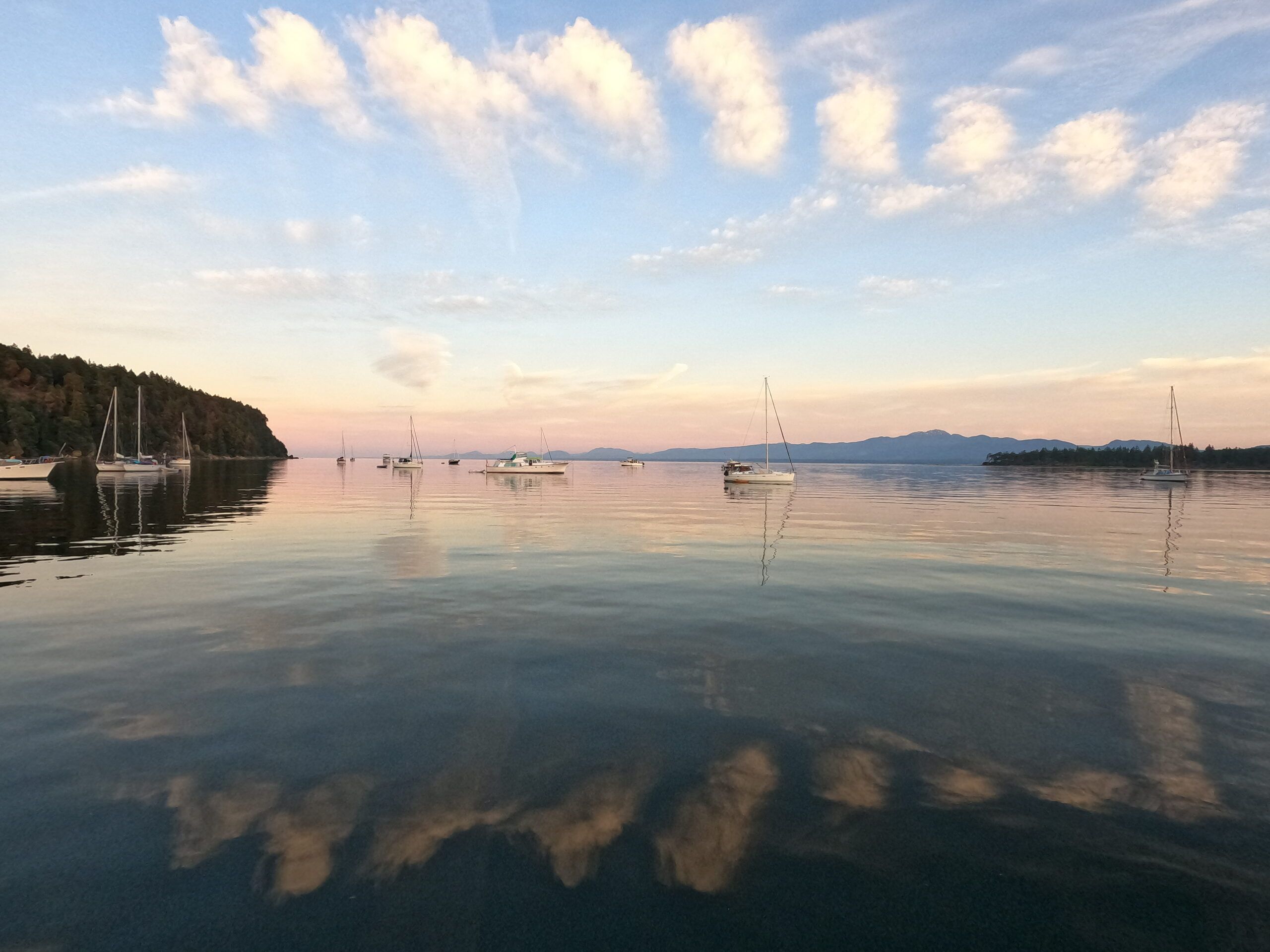Read the engaging and interactive stories below to learn about what’s happening in BC’s marine environment and the science that goes on to understand it. Our marine environment faces many challenges, and only through greater awareness can we better appreciate the urgent need for action to protect this vital ecosystem and its species.
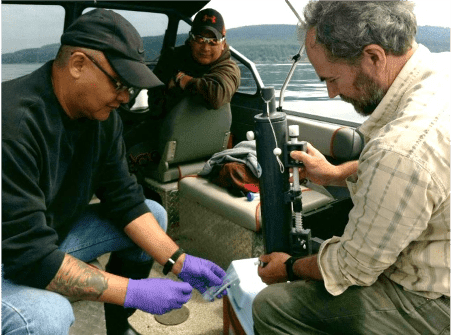
The Citizen Science Oceanography Program
Citizen scientists collect information in different areas of the Strait of Georgia with the goal of increasing our collective understanding of variables that drive salmon and steelhead survival in saltwater.
Read Story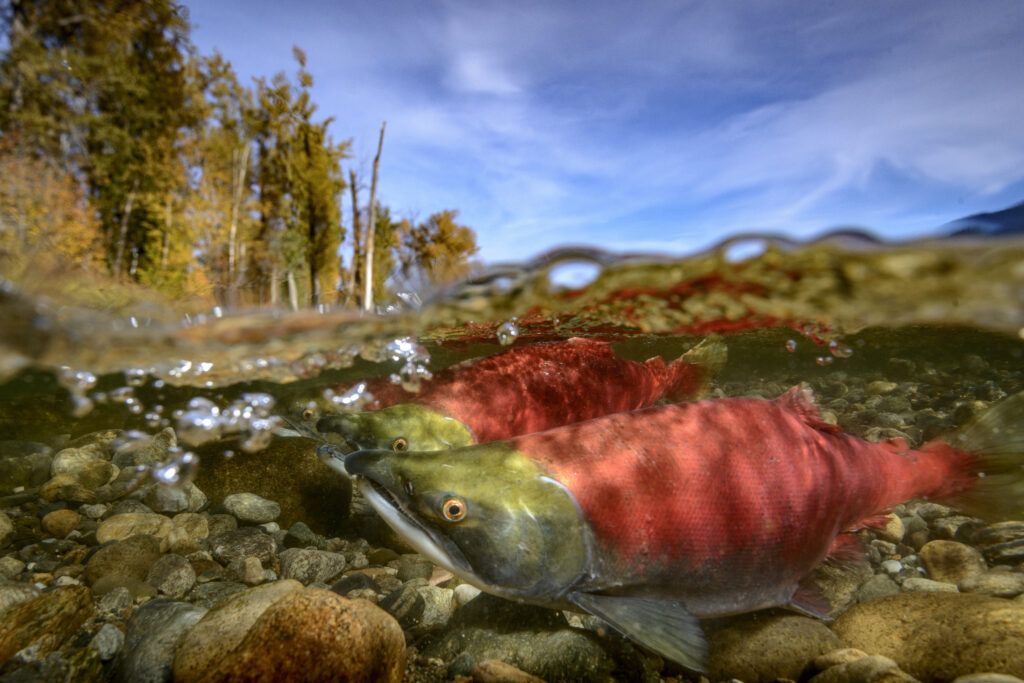
Climate Action for Salmon
The effects of climate change are unequivocally one of the greatest threats to wild Pacific salmon. Increased frequency of heatwaves and storm events, reduced glacier input in freshwater streams and changing physicochemical properties in the Pacific Ocean are just some of the many issues adversely affecting salmon.
Read Story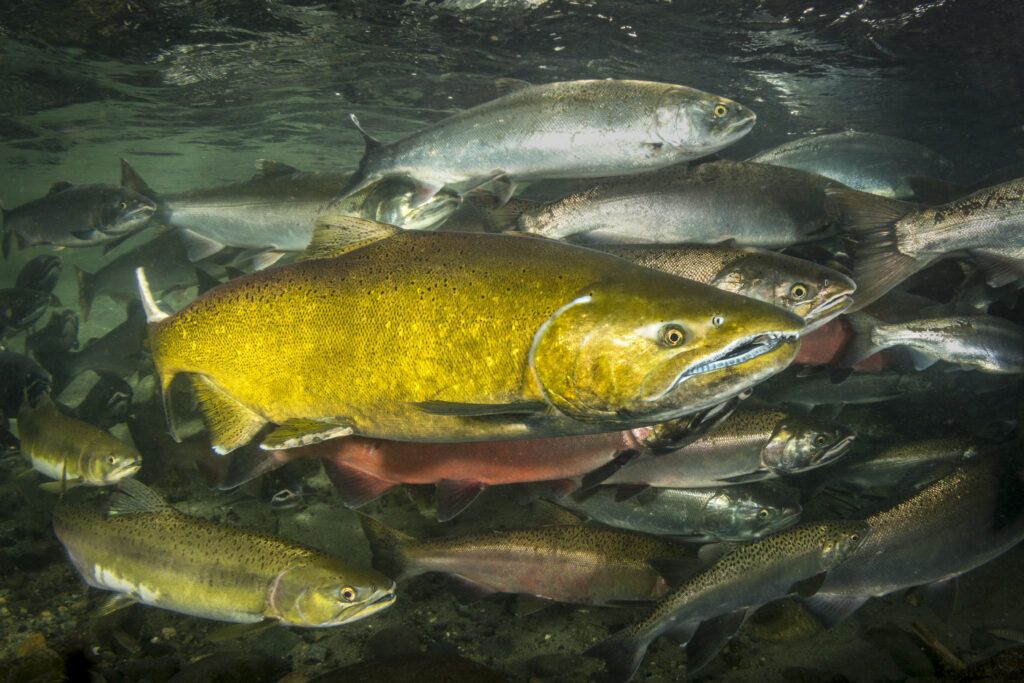
The Diet of Adult Chinook and Coho Salmon
Chinook and coho salmon play a key role being a source of nutrients for a variety of species including other fish, orcas, birds of prey, seals, and trees on the banks of spawning rivers. As such, the health of salmon populations are key to the overall ecological health of the Salish Sea.
Read Story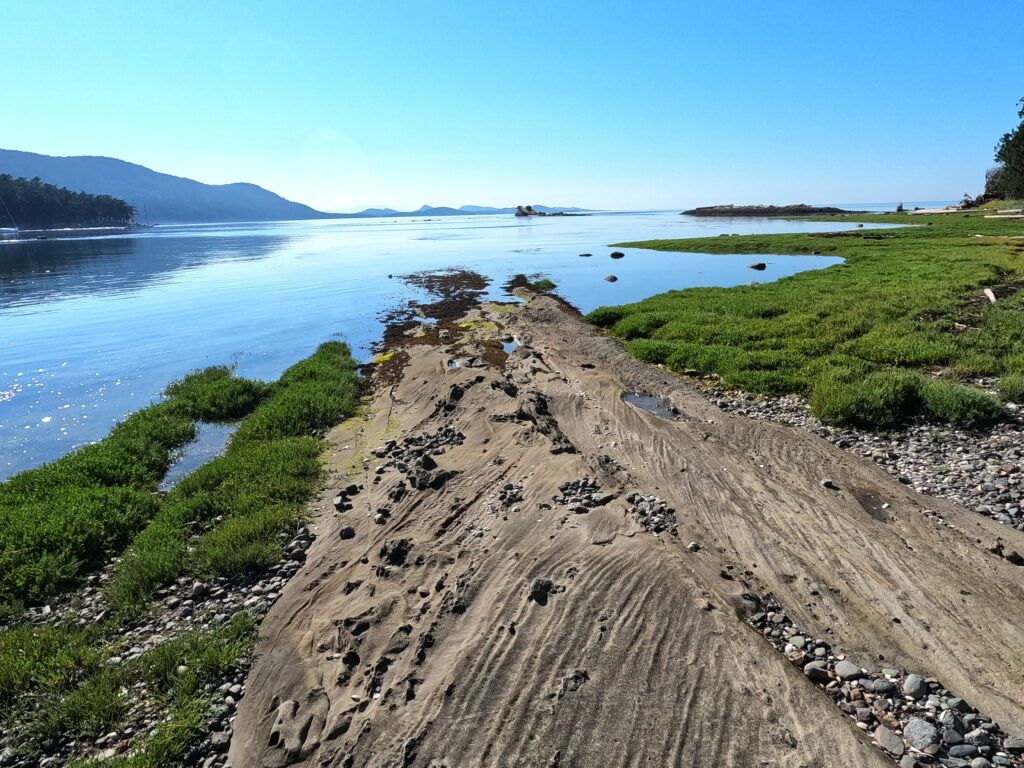
Forage Fish in the Salish Sea
Forage fish are small schooling fish that play a crucial role in the marine food web, directly feeding many marine animals including orcas, birds, and salmon. Their role as prey underpins the health of our ocean ecosystems and their importance to the survival of salmon populations in the Salish Sea.
Read Story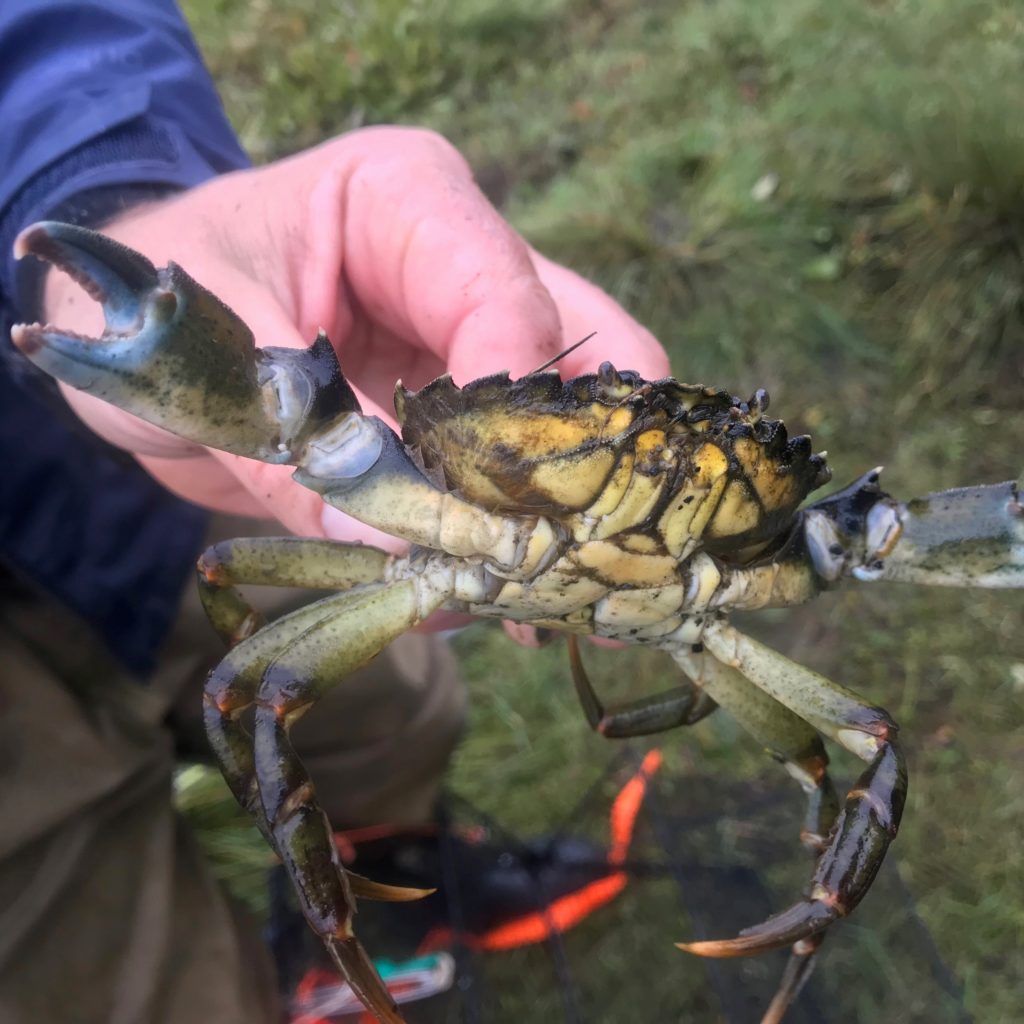
Invasive European Green Crab in BC
The European green crab (EGC) is a small coastal crab that has had major negative impacts on the marine environment. It is an invasive species that has been spreading over the last couple decades and is considered one of the 10 most unwanted species in the world.
Read Story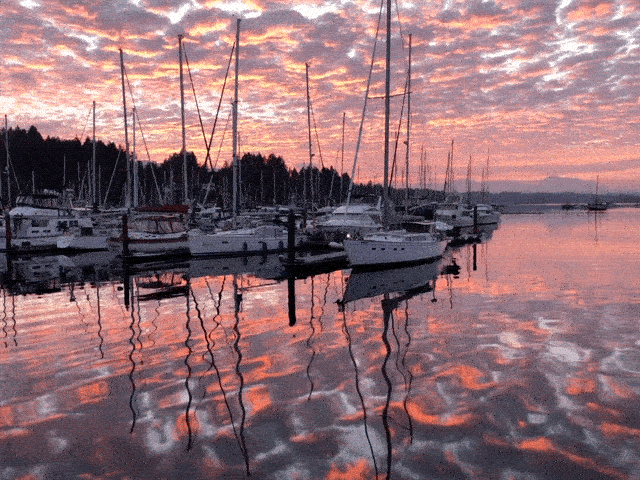
PSF’s Marine Science Program and the Coastal Marine Strategy
The PSF Marine Science Program has been investigating and working towards ways to improve the future for Pacific salmon, and many of our objectives align with the Province’s proposed Coastal Marine Strategy.
Read Story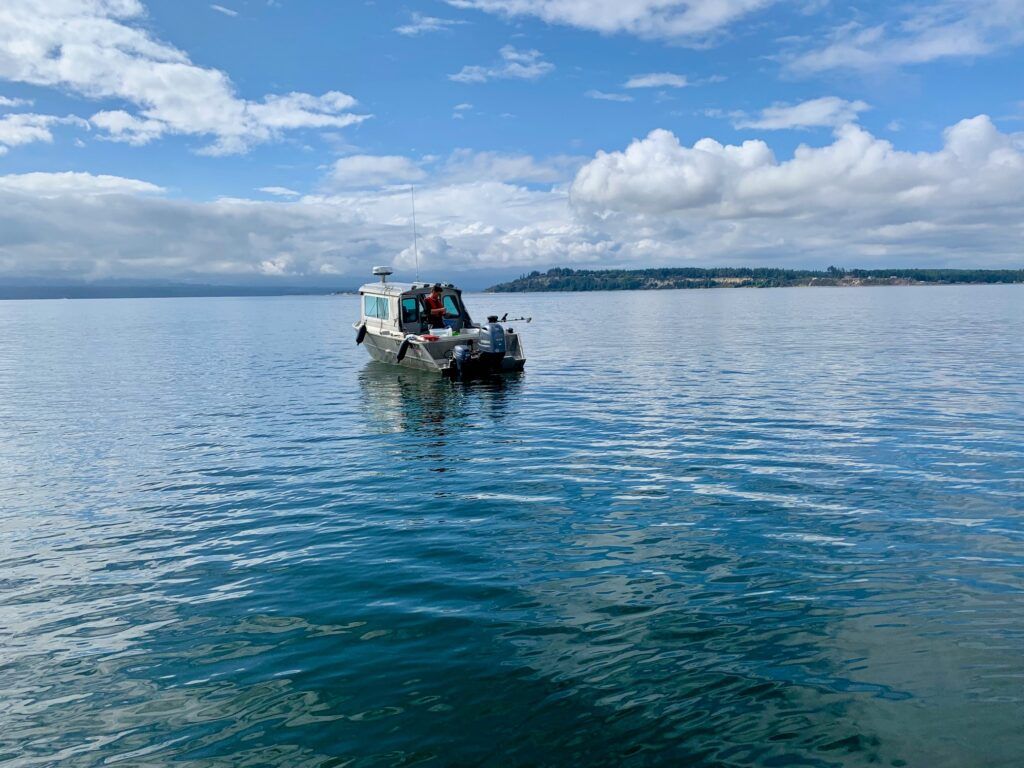
Novel Technologies in the Salish Sea
Through the Salish Sea Marine Survival Project multiple novel techniques were developed and utilized to determine salmon health, survival, and habitat conditions.
Read Story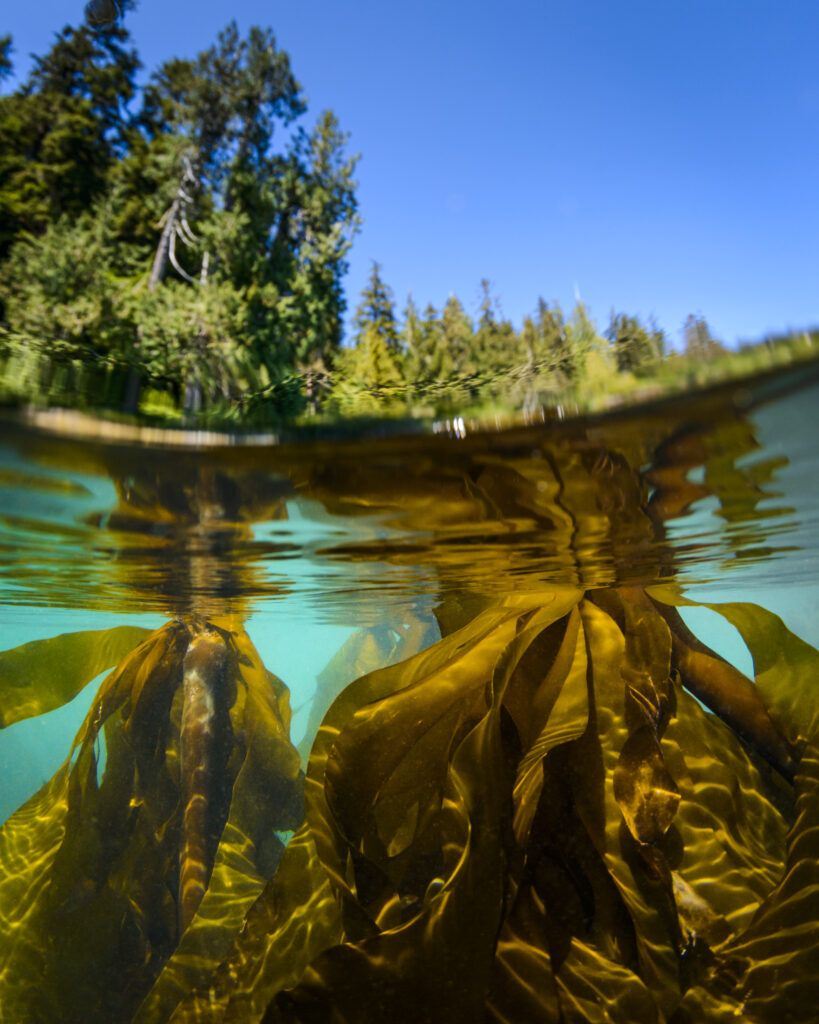
Researching and Restoring Nearshore Habitat in the Strait of Georgia
The Salish Sea Marine Survival Project is to date the largest and most important research of its kind in the shared waters of British Columbia and Washington State. Headed by Pacific Salmon Foundation and Long Live the Kings, collaborators worked over five years towards addressing uncertainty impeding salmon recovery and sustainable fisheries through restoration and research.
Read Story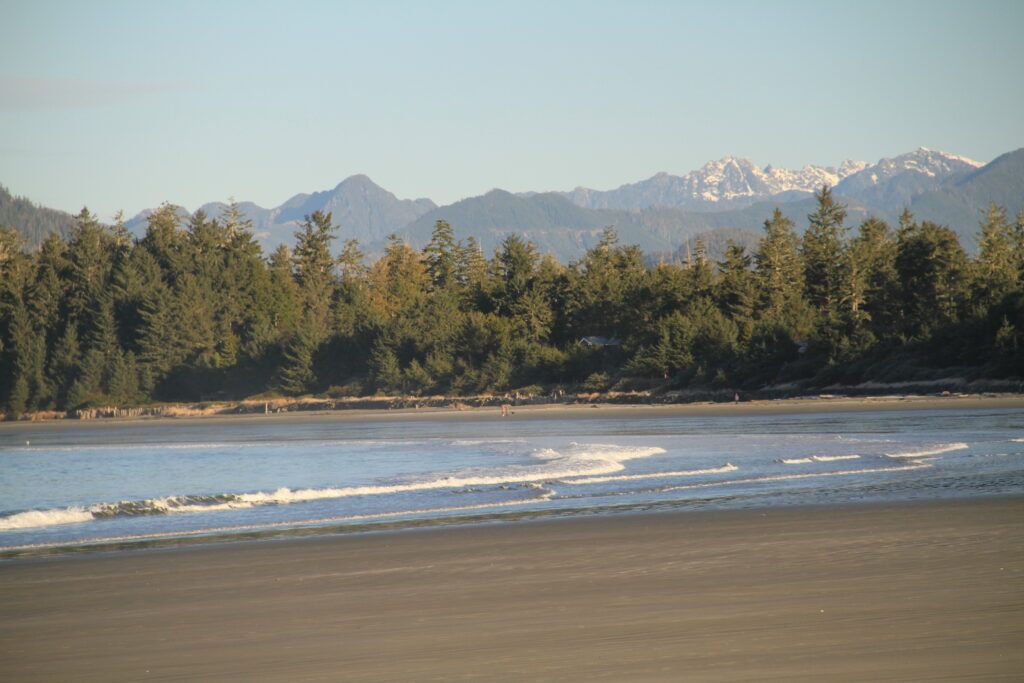
The Strait of Georgia Data Centre
The Data Centre was built as a centralized repository for data for the Strait of Georgia ecosystems, preserving datasets and making them accessible. Data are brought to life through interactive and visual products enhancing the understanding of science and the environment.
Read Story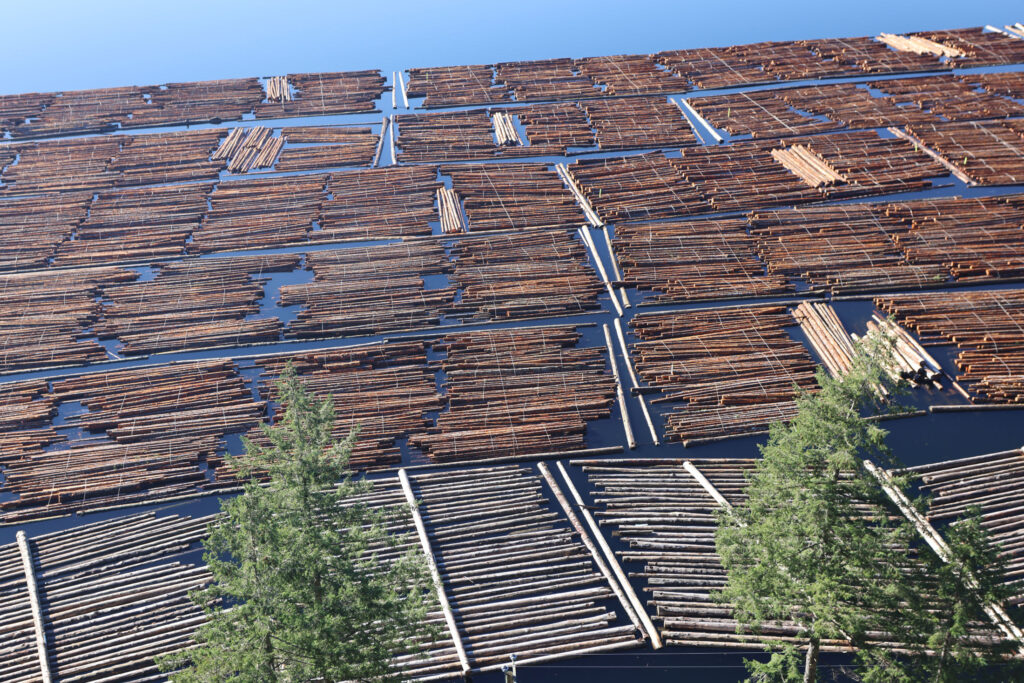
Log Booms, Estuaries, & Salmon
Decades of research has shown that log booms stored in estuaries negatively impact salmon and local ecosystems. It is important to find ways to work together with the forestry companies find alternatives such as using dryland sorting facilities, moving existing log booms to deeper waters, and expanding log boom operations to locations with less critical habitat for salmon.
Read Story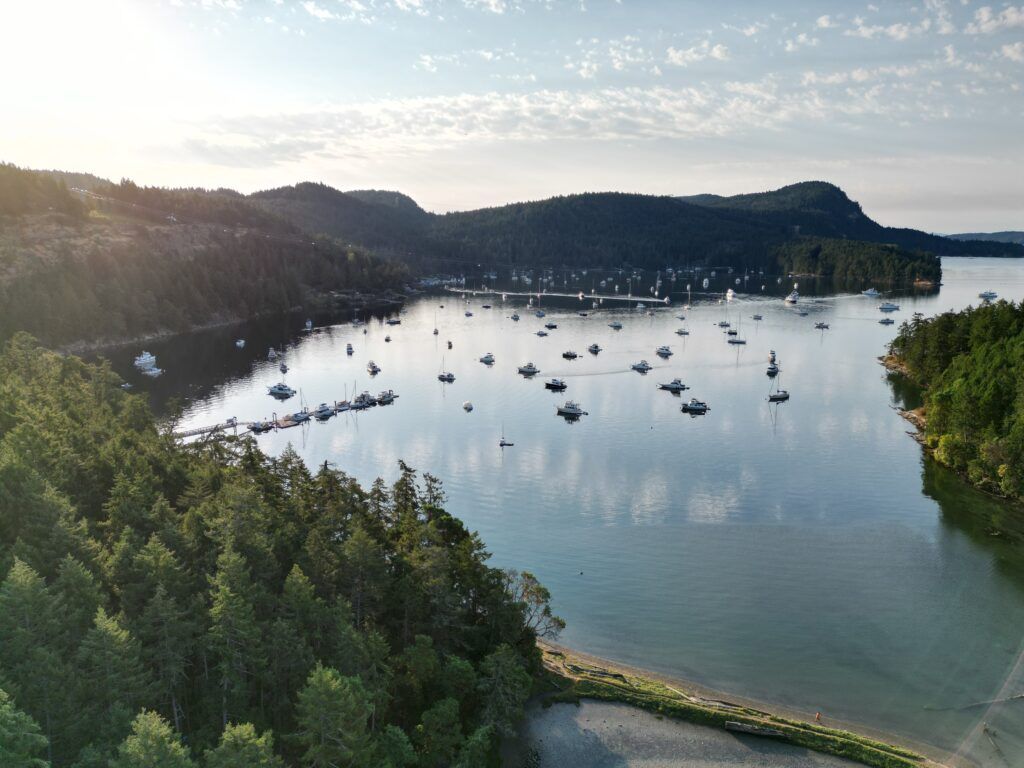
Creating Resilient and Clean Coasts for Salmon
Coastal modification reduces habitat availability for species like Pacific salmon. The Pacific Salmon Foundations’ Resilient Coasts for Salmon project works with communities to increase coastal resilience by protecting coastal infrastructure in a way that preserves and restores natural shoreline habitat.
Read Story